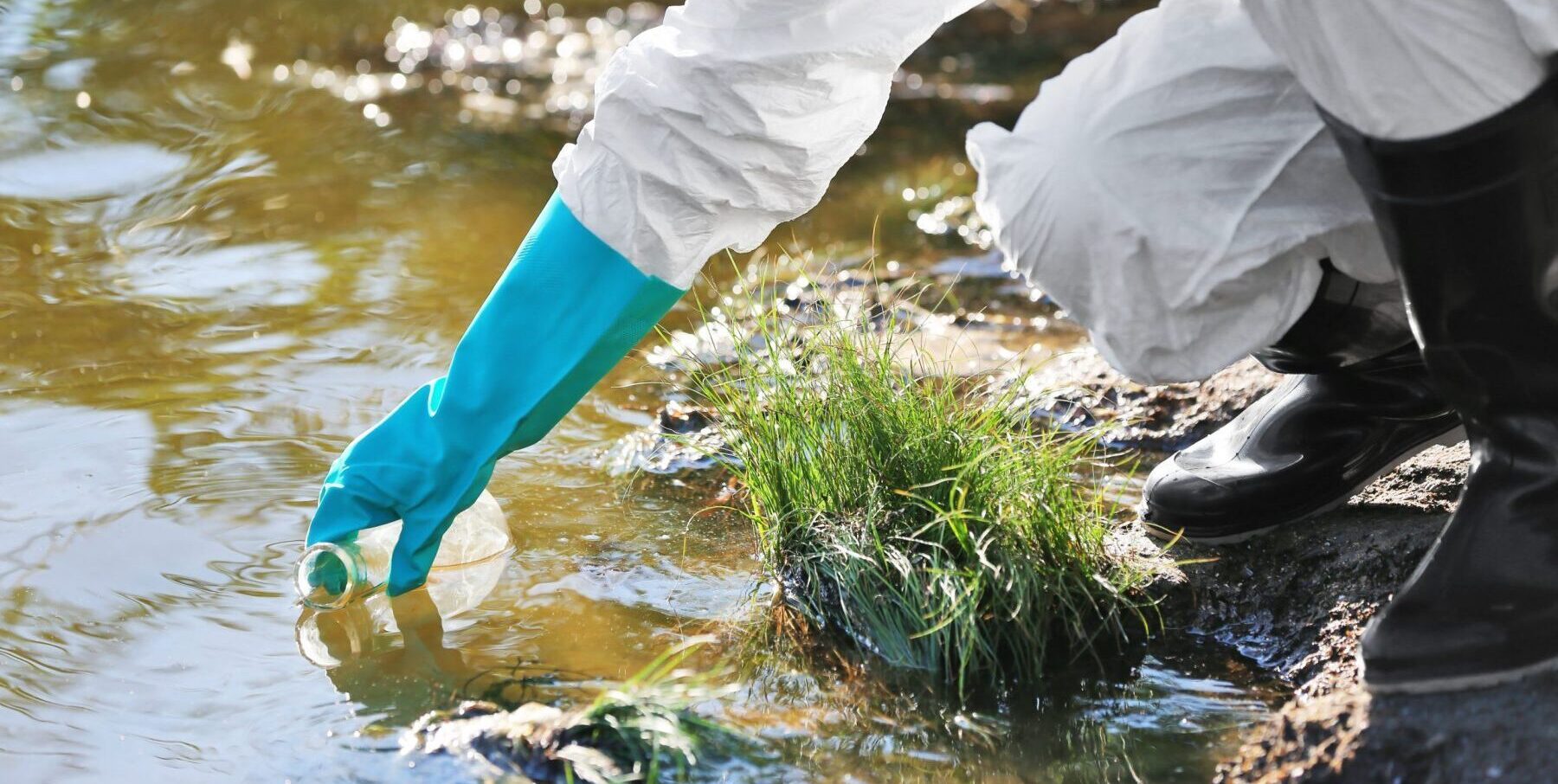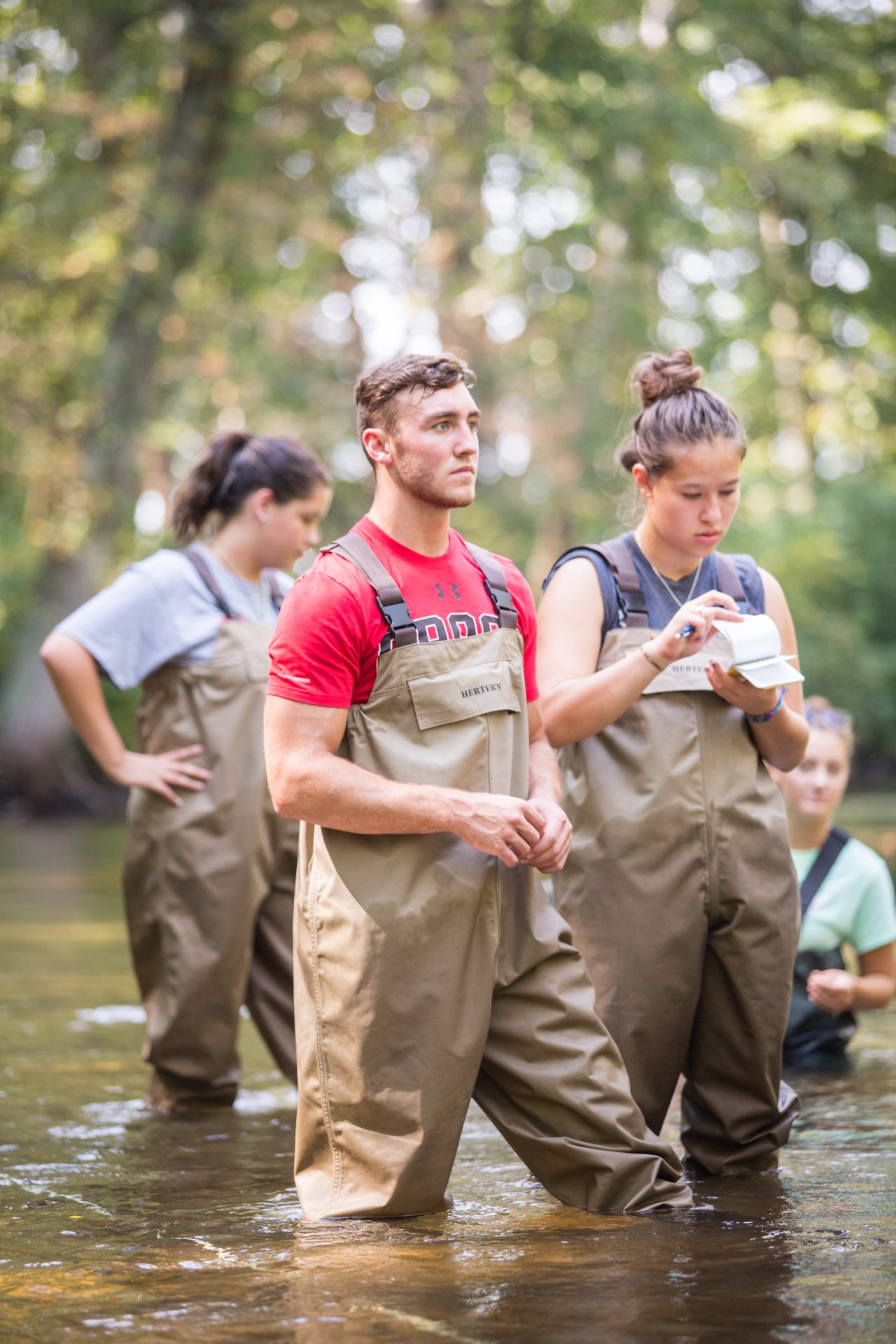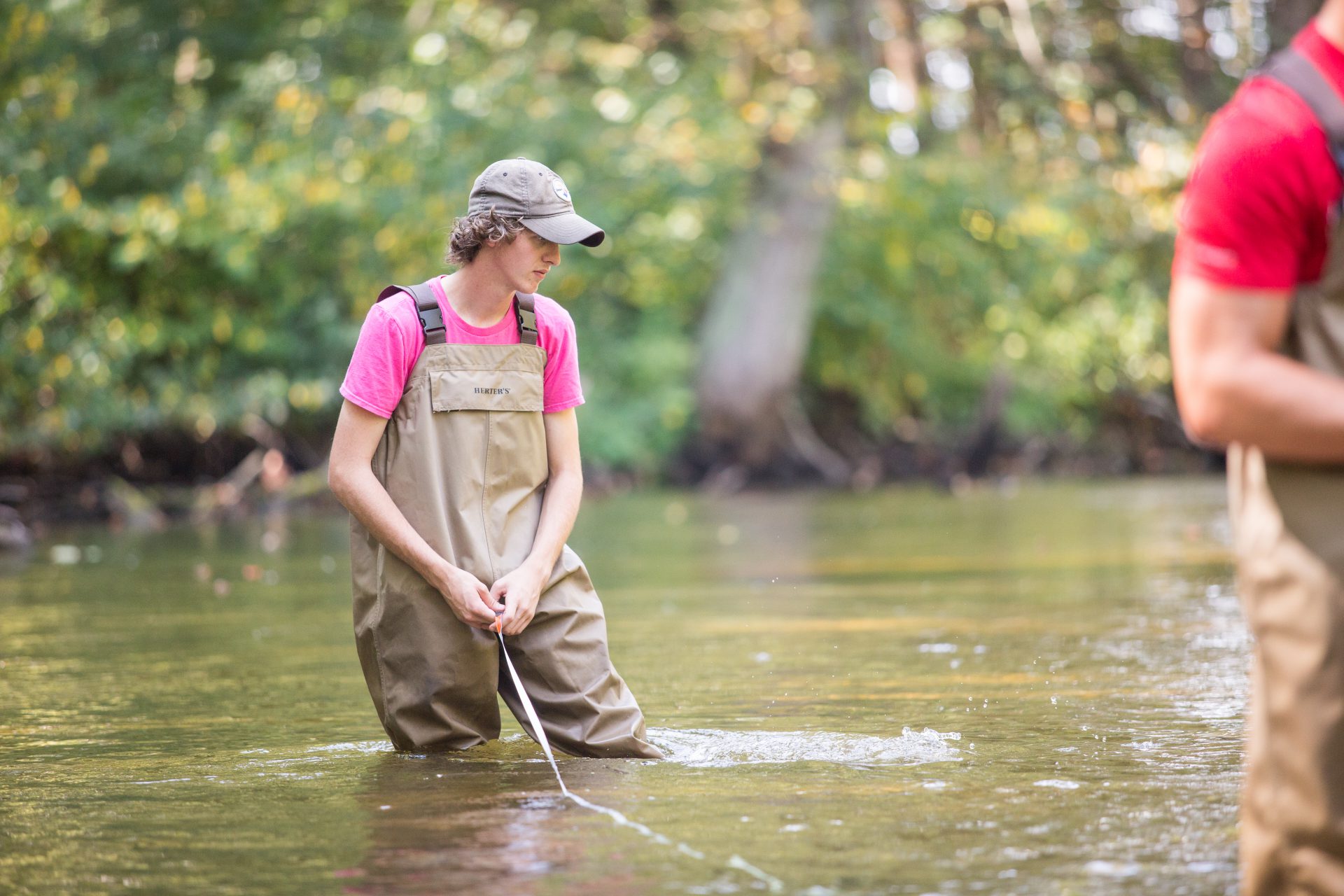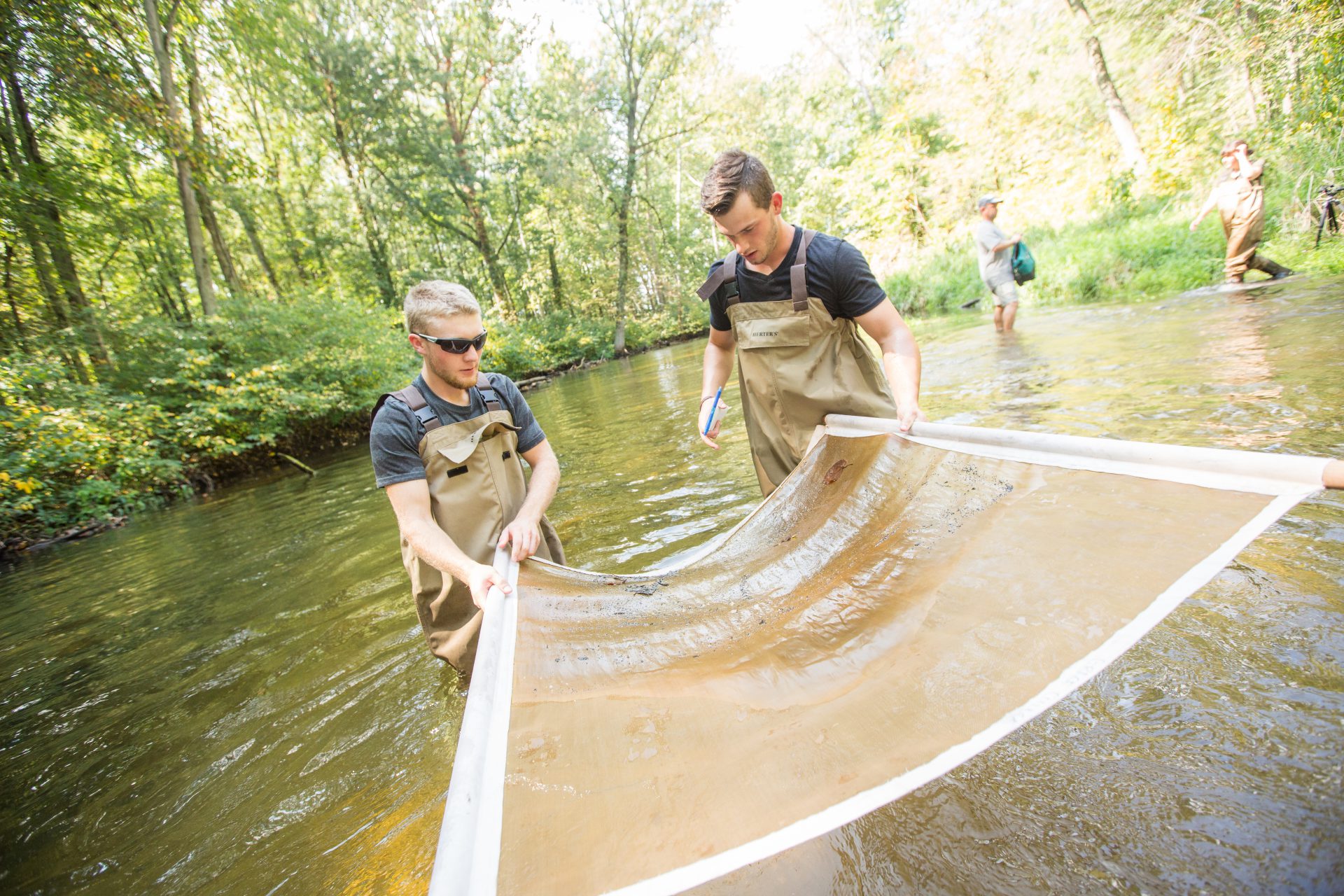As an environmental studies major at Grace, you’ll dive into the complex ways organisms interact with one another, and you’ll explore how humanity’s societal and political systems impact the environment — for better or for worse.
Our environmental science program, which includes majors in environmental science, environmental biology, and environmental studies, finds its roots in the very, very beginning. As outlined in Genesis, we as God’s image-bearers have the privilege and obligation to steward His wonderful Creation. As an environmental study major, you’ll fulfill this mandate through social awareness and advocacy.
Your core courses, including ecology, psychology, and environmental ethics, will equip you with scientific and social expertise to navigate environmental advocacy. From there, you’ll choose from classes in areas that interest you, whether that’s geography, government, or microbiology.
The best way to describe Grace’s environmental studies degree program? “Hands-on” and “feet-wet.” From restoring tallgrass prairies, to holding prescribed burns, to collecting bloodworms 80 feet down in Winona Lake, get ready to grab your gear and explore all five of the major Midwestern ecosystems right here on campus: forestry, grasses, wetlands and marshlands, streams, and lakes!
Your courses will culminate in a senior seminar, in which you will research, prepare, and present scholarship about an environmental topic of your choice.
You’ll also have an entirely unique internship opportunity at the Lilly Center for Lakes and Streams, a nonprofit research center and division of Grace College. You may maintain the building’s several aquariums, take periodic research samples, or prepare educational curricula for local elementary schools!
When you graduate, you’ll be equipped for environmental work in any social setting. Environmental studies degree graduates at Grace have gone on to work in environmental law, environmental compliance, and nonprofit rehabilitation work.












